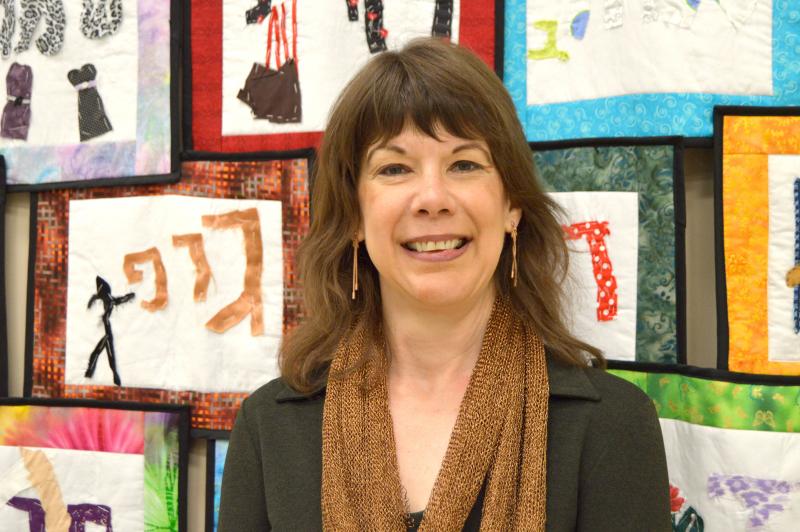Robin Abrahams discusses 10 years of ‘Miss Conduct’
Over the past decade, Robin Abrahams has been answering questions about in-laws, searching for a job, how to handle a guest who won’t stop texting and much more. The bulk of her advice pivots on one central idea: responsibility toward the community.
Abrahams, a Cambridge-based writer and research psychologist, spoke at Tifereth Isreal Congregation as part of the Sunday Morning Speaker Series to give attendees a behind-the-scenes look at her advice column “Miss Conduct.”
She said her job at The Boston Globe Magazine began after she gave a presentation on the psychology of storytelling. The magazine’s former editor, Susanne Althoff, happened to be in attendance and thought she would make a great advice columnist.
“I was getting my doctorate in psychology at Boston University. I was doing it on the psychology of narrative — how people tell stories and how people understand stories,” said Abrahams.
“That’s what I was interested in during grad school: Why do people look at the same basic text and everyone reads something different into it? Everyone comes up with a different interpretation,” she said.
That basic idea became the key to understanding the questions posed by her readers. She said when she first receives a letter, she runs through a list of questions from what is the reader telling her, what are they not telling her, how are they casting the other people in the story and what might the other person’s perspective be.
Raised a Protestant, Abrahams converted to Judaism shortly before accepting the role at the magazine. She said that while her faith doesn’t have an explicit impact on her writing, there are some Jewish principles that help guide her advice, especially those pertaining to community.
“We are all responsible for each other in some way,” she said. “We’re all, at any moment, participating in creating the social fabric.”
Abrahams described a woman who wrote in regarding how much she was willing to pay her babysitter. The letter's writer haggled her babysitter down to $8 an hour from the original request of $10 an hour. Abrahams began by asking her friends who were moms what they were willing to pay. The baseline was $10 an hour.
But then she thought of the broader implications of an adult haggling with a 16-year-old girl.
“Have you read any of the studies about how women don’t negotiate their salaries as aggressively as men do?” she said, reading from her original response. “The next time you’re sitting down over the latte and cronut that you bought with the $16 you saved by haggling a teenager down to minimum wage, you might want to catch up on that literature.”
However, she admits that not everything is so cut and dried. For instance, the bulk of the questions she receives deal with the rapid pace of social change.
A month after gay marriage became legal in Massachusetts, a man wrote to her wondering how he should throw a bachelor party for his gay brother and his brother’s future groom.
“I’m like ‘Why would I know!?’” she said, adding that the best advice wouldn’t come from her, it would come from the writer asking his brother directly. “A lot of times, things are moving so fast that simply the only thing to be done is to admit that we’re all out there making it up.”
She said that as much as American life — and technology — has evolved over the last decade, her advice column still returns to the basic principles she’s learned through Judaism.
“Everything we do, because we’re all responsible to each other, has implications and sends messages far beyond that one action,” she said.














